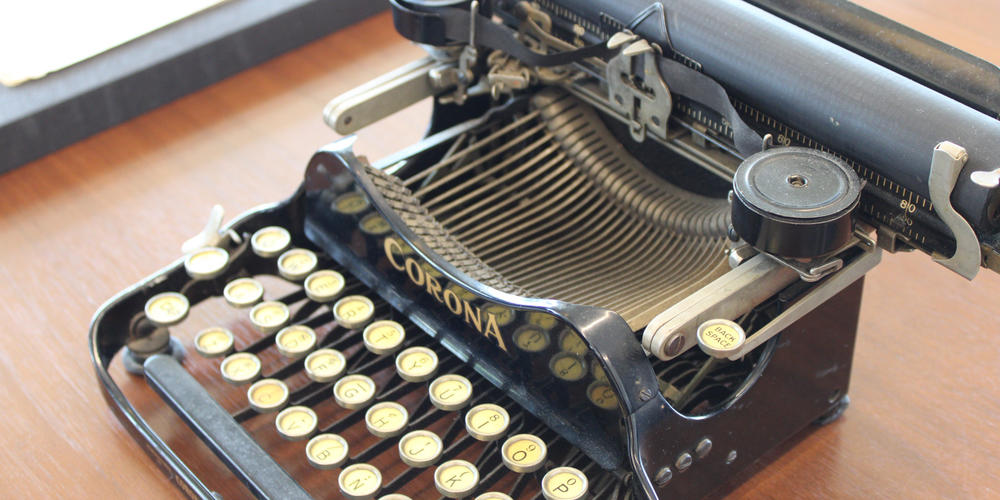
Caption
Original typewriter used to write "Lift Every Voice and Sing."
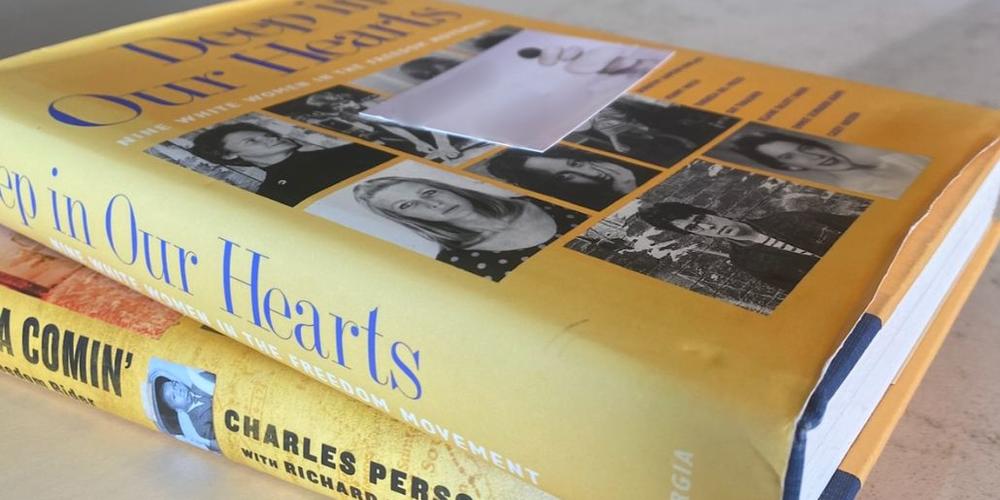
Caption
Copies of the collaborative memoir "Deep in Our Hearts" and "Buses Are a Comin': Memoir of a Freedom Rider" by Charles Person, were added to Rose Library's archives.
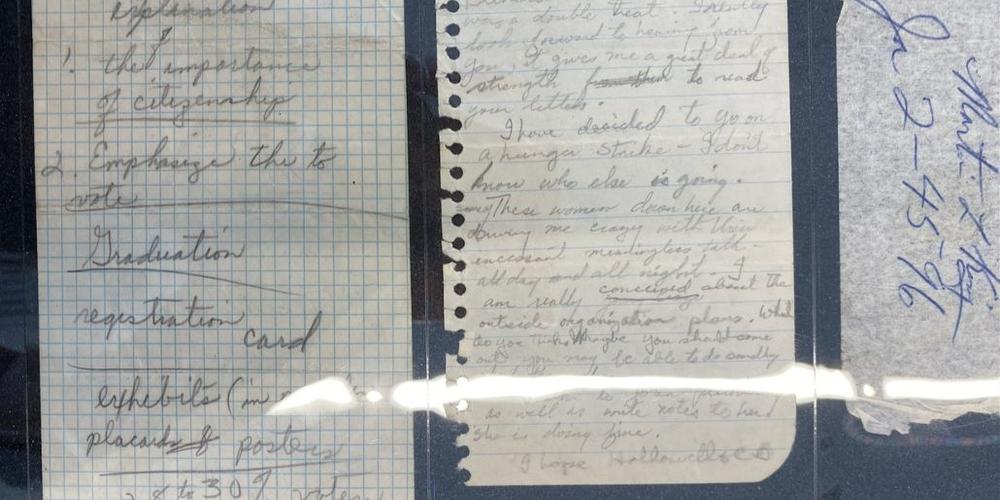
Caption
A written list of ideas, a handwritten letter, and Martin Luther King Jr.'s personal phone number.
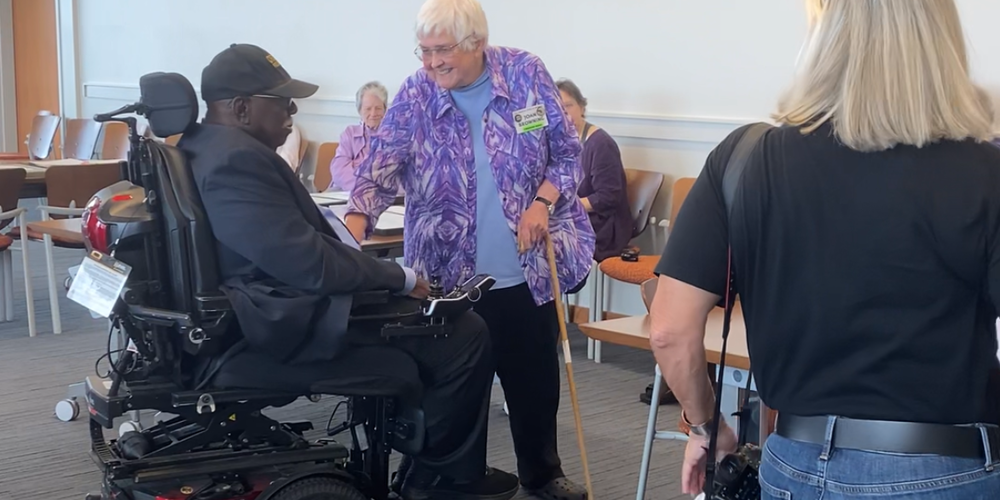
Caption
Joan Browning and Charles Person laugh and reminisce.
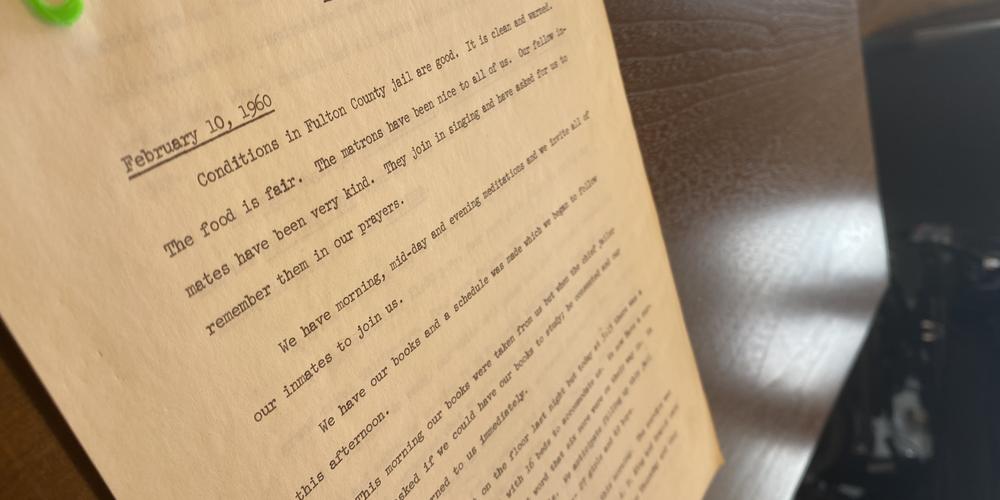
Caption
Typewritten copy of "Diary of Jail Experiences," written in Fulton County Jail.
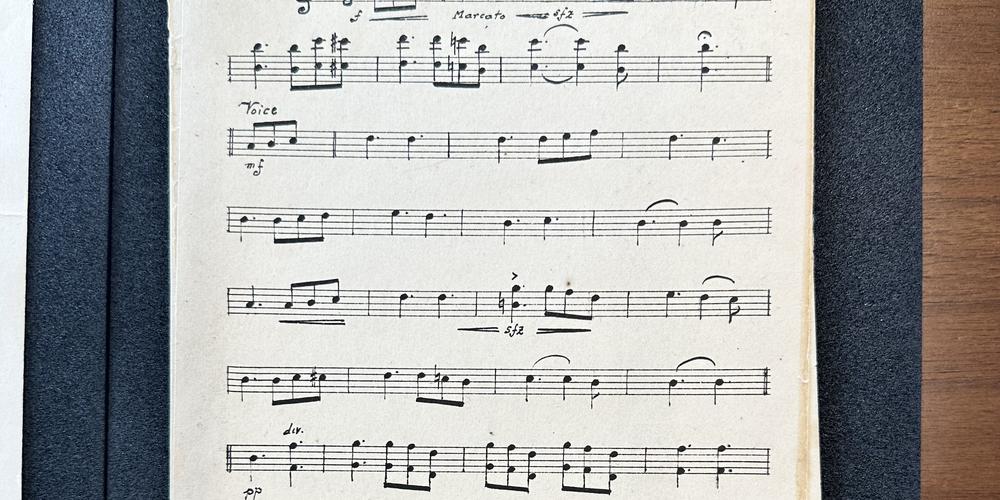
Caption
An original copy of the musical score to "Lift Every Voice and Sing."











